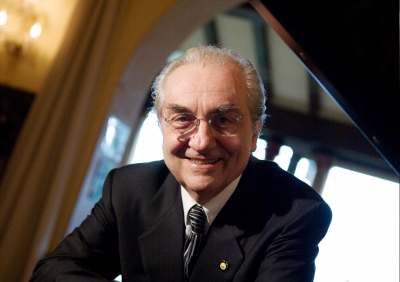The ten Commandments for a cook
Ten rules to guide us. Being a cook – states the first point – is a job, or better still a service, a ministerium. In these days, when there seems to be more cooks on TV than in restaurant kitchens, it can be hard to understand what a cook really is and what is to be expected of her or him. It is a sign of these chaotic times. Here is the opinion and creed of the great Italian chef Gualtiero Marchesi

THE TEN COMMANDMENTS FOR A COOK
1. Being a cook is a job, or better still a service, a ministerium.
2. The pure white uniform of a cook symbolizes the key features of his or her work: honesty, cleanliness, respect.
3. The cook must abide to the recipe. All executions however call for some degree of interpretation: this should be well dosed, neither excessive nor absent, and always introduced with respect and discretion. A composer stands at a higher level.
4. There are three positions, each with a different level of skill and experience: the executor, the interpreter and the composer. To pass from one position to the next, the cook must first of all master all the courses of a meal – entrées, first courses, meat, fish, desserts – and subsequently specialize in one of them.
5. In order to expand one’s gastronomic culture, it is important to know the territory: the water, soil and air all contribute to its character, giving substance and flavours to its fruit and animals; the inhabitants and the climate too inevitably influence the products of the land.
6. Studying the food culture of other countries can increase one’s knowledge of culinary art and its many creations, unusual-looking dishes made with novel ingredients.
7. The skill of a cook rests on two pillars: knowing the ingredients and how to treat them, respecting their nature.
8. Technical solutions and virtuosity cannot be independent of a profound theoretical and practical knowledge of both techniques and materials. A technique, by definition, is the appropriate, controlled and non-destructive use of the best instruments available for the operation one intends to execute, an operation that must never kill the ingredients.
9. When preparing a dish, the cook must always know cooking times and methods, the exact temperature required and when necessary, how long the preparation should rest for, because even this aspect is extremely important, as are the pauses of silence in a musical score. Another important aspect is the presentation, which largely depends on the vessel or dish it is served in.
10. One of the tasks that does credit to a good cook is to divulge and promote gastronomic culture, both by setting the example with the food served and by training young apprentices, hence passing the torch on to the most deserving, and introducing them to Gastronomic culture. The latter, in essence, is a conscious experience, and can be defined as applied research in constant evolution, aimed at adapting to change and achieving perfection.
And finally, “creating is: not copying!”
Without however pursuing innovation at all costs, because the “never seen before”, in itself, is not a virtue. We can discover new aspects both in the known and the unknown, the important thing is that our creation is aimed at Truth. Art always speaks the Truth.
Gualtiero Marchesi
To comment you have to register
If you're already registered you can click here to access your account
or click here to create a new account


Comment this news